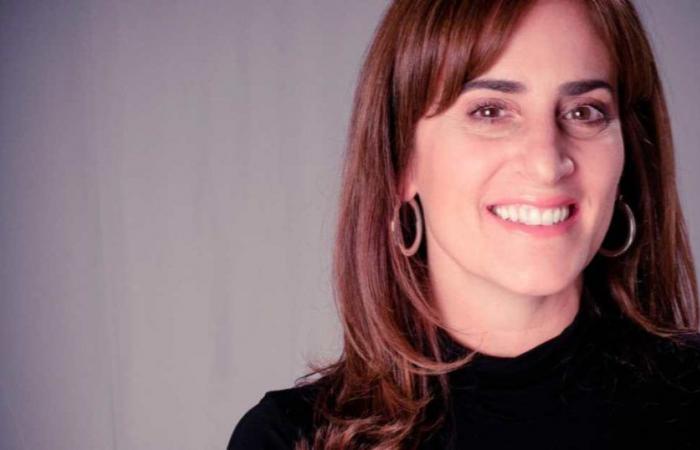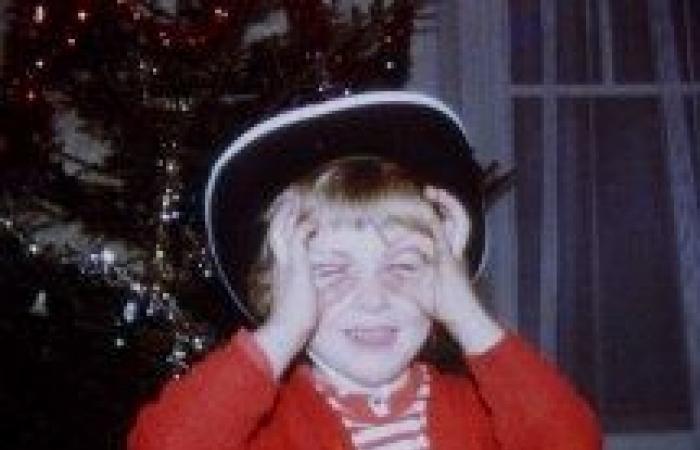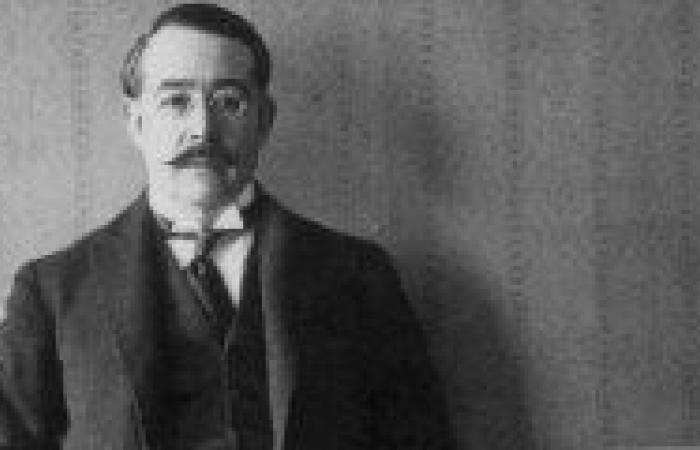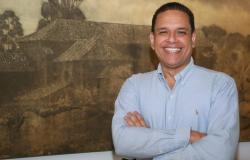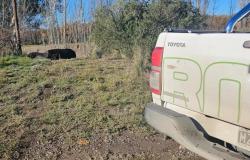Felicitas Fernández de Peón spent her childhood and adolescence in Cipolletti. She went to school 17, she swam at Club Cipolletti, and played hockey at Marabunta. She later went to study law in Buenos Aires and moved to the United States to specialize in Human Resources Development at FIU (Florida International University). But her life took a turn: after returning to the UNHCR in 2001 and working for a time as a legal advisor, she contracted meningitis.” I was hospitalized for a month, on the verge of death, and that marked a before and after.”
In that before and a long after that includes the pandemic and other changes, something that he had not planned is included: writing “El alma en blanco”, his first novel, which takes place between Boston, Buenos Aires and San Martín de los Andes, a place that he has treasured since those childhood days in the Alto Valle.
“Although I was born in Buenos Aires, my father’s family is from Cipolletti and we moved to Cipo when I was three years old. I spent my entire childhood and adolescence there. Then life took us, and although I was lucky to live in many interesting places, my heart will always be black and white,” he says.
“El alma en blanco”, published by Editorial Autores de Argentina, was published in 2022, but it is a project that was born much earlier and that was postponed several times.
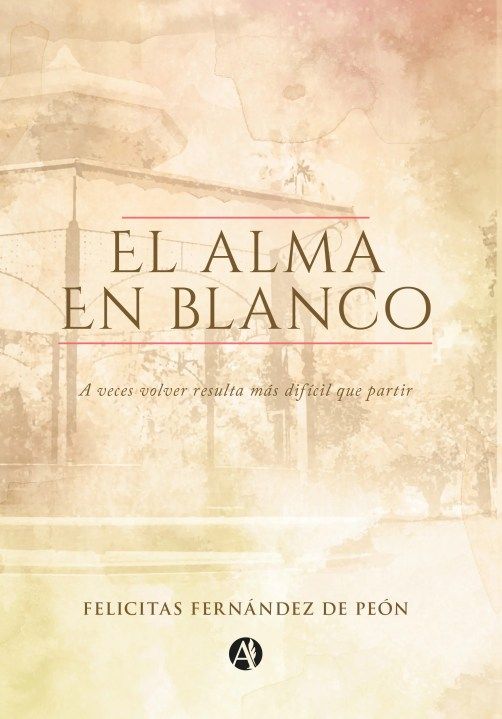
The book narrates the life of Malena García Goyena, who decides to return to Argentina full of dilemmas, and also that of her family, plagued by a hereditary disease, and some secrets that threaten to dismantle everything. In dialogue with RÍO NEGRO, the author, who currently lives in Portugal, told how this book came about and what led her to tell that story. “The title came to me before the story and the intention at first was to convey the idea that, beyond the obstacles that life throws at us, one can find the strength to rewrite one’s own story. But to get there, you have to travel a path, often difficult, of doubts, failures, self-knowledge. In 2007, we moved to Caracas, and when we arrived my husband was seriously injured playing rugby. He couldn’t drive, and I had to take him almost daily to rehabilitation sessions at the La Floresta clinic, and stay there waiting. One day it occurred to me to buy a notebook, and I started writing. Malena’s story began to come out a little in spurts, disorganized. I didn’t really know where the story was going to take me, but I wrote non-stop. And so, without having planned it, Malena got on a plane to Buenos Aires and took me for a walk through those places that she missed so much.
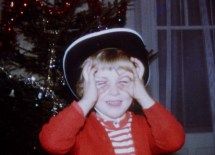
– This is a family story, in which deceptions, health problems, discoveries intersect. But, health issues take a predominant role, not only those of Lola (Malena’s sister), and the need for a kidney transplant, but Tomás’ alcoholism, a possible breast cancer.
-I believe that throughout life one absorbs everything one sees, hears and reads, stories and experiences of one’s own and those of others that feed the imagination, and that is how the story and the characters emerged. Personally, I am fascinated by the complexity of human relationships. “You see faces and not hearts” my mother often says, and I think it’s true. When you observe a family from the outside, you don’t know the crosses and challenges they are going through. I wanted to tell a story about real people, with problems, but at the same time, show that it is in difficult times when family support is essential to move forward and overcome. Although “The Blank Soul” is a fiction novel, there is something that I carried from my own story and that is hereditary polycystic kidney disease. My grandmother was on dialysis for many years and my mother was a kidney donor when I was ten years old. Although it was a situation that my family experienced very naturally, I feel that it marked my childhood and, although from another place, I felt the need to address the topic.
-Although things happen to everyone, the center of the story is Malena, how did you build that particular character?
-The name came to me from tango, and I chose it on purpose to reflect that “pena de bandoneón” that Malena carries in her heart. In some aspects I identify a lot with her, because of that feeling of living with a torn heart, of being physically in a place, but at the same time longing to be close to her affections. The Portuguese have a term that they say has no translation, and it is “saudades”. A mixture of longing, melancholy and attachment, all in one word. It is part of the Portuguese culture and identity and is also felt in Fado, its very typical music. I think that life brought me to Portugal to help me understand that deep feeling that I feel for my country, Argentina… those eternal “saudacies” of my land that I think are reflected in my writing, in everything that I miss about Buenos Aires , from the South, from the people and it is something that Malena and I have in common.
– Something that guides the chapters is the tango, in addition to the name of the protagonist. Where does this interest in tango come from?
– Yes, each chapter begins with the verse of a tango, anticipating what is going to happen. My father was always listening to music. He was very eclectic and at home we listened to a little bit of everything from Alan Parsons Projects to Serrat, but he also had a list of his favorite tangos: Malena, Naranjo en Flor, Volver… I grew up listening to them and I grew fond of them. Although while I lived in Argentina I was not much of a tango fan, when I went to live abroad the tangos took on another meaning, strengthening my connection with my roots.
— The story takes place mainly in Buenos Aires, but it has its chapters in Patagonia. Is there something special that unites you to San Martín de los Andes?
-San Martín de los Andes is a very special place for me. As a girl we spent summers in Quila Quina with my family and I have many beautiful memories. Then I continued going as a teenager, but I hadn’t returned since I went to live abroad. A couple of years ago I returned with my husband and children. It was a very emotional experience to come back after I had written the book and show them all the places I mentioned in the story. In fact, following in Malena’s footsteps, we crossed the lake by boat and walked together to the little virgin of Quila Quina.
– Despite all the setbacks, it is a hopeful novel. What message did you want to convey?
-The main theme focuses on the challenges and false expectations that come with returning -with a withered forehead, as the tango says-, but at the same time, my intention was to address other topics such as the value of family, motherhood, courage to leave behind what weighs you, faith and the search for happiness.

-How did you start writing, and why was this project delayed, as you say in the book’s acknowledgments?
-Writing a book requires a great deal of dedication, effort, and taking the time to sit down to write and correct. When my children were young it was difficult for me to find that time for myself. When we moved to Portugal I took a professional break, and found time to return to the manuscript.
Then, The pandemic arrived and it was a moment of great reflection for me, perhaps because it revealed how fragile we are and how ephemeral everything is. I was always one to procrastinate but suddenly I felt a sense of urgency to complete projects and I think that was what pushed me to move forward until I saw the book published.

